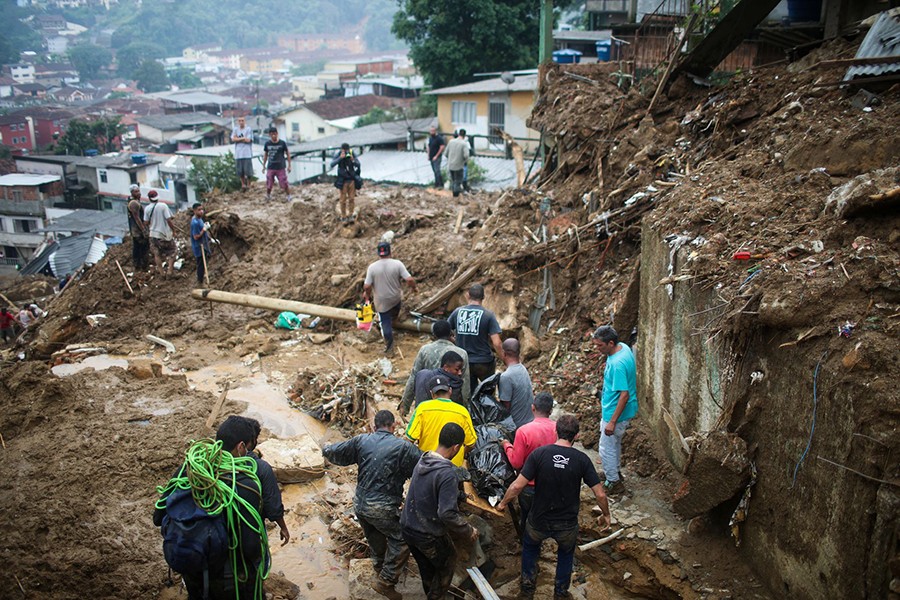At least 94 people died in the historic Brazilian mountain town of Petropolis, local government officials said on Wednesday, after heavy rains caused mudslides that buried homes, flooded the streets and washed away cars and buses, reports Reuters.
Located in the hills above Rio de Janeiro, Petropolis, or the "Imperial City," was the summer getaway of Brazil's monarchs in the 19th century. On Wednesday, there was scant evidence of its regal charms, after the floods ravaged its elegant streets and destroyed its Germanic buildings. Rainfall on Tuesday exceeded the average for the entire month of February.
Hilda, a resident who declined to give her full name, was distraught as she waited in the street near the remains of her house that she shared with eight people.
"I lost my niece and her five-year-old daughter, who we still haven't found," she said. "We did not expect this tragedy. Our city is over."
In the Morro da Oficina neighbourhood, up to 80 houses were hit by landslides, according to authorities who expect the death toll to rise. Fire department and local civil defense teams were working at the site.
"The situation is almost like war ... Cars hanging from poles, cars overturned, lots of mud and water still," Rio de Janeiro Governor Claudio Castro told reporters onsite.
Petropolis' city hall declared three days of mourning. Displaced people were being taken to schools and shelters. More than 300 people had to leave their homes.
"The water came very fast and with great force. My loss was 100%. Our life was already tough with the pandemic and less movement, and this tragedy still comes," said shopkeeper Henrique Pereira.
President Jair Bolsonaro, who is traveling to Russia, said on Twitter he had asked ministers to help Petropolis and storm victims.
"We intend to already offer to the mayor what we can," Bolsonaro told reporters in Moscow, adding that he would release federal funds to help "restore traffic in the region."
Since December, heavy rains have triggered deadly floods and landslides in northeast Brazil and Sao Paulo state, threatened to delay harvests in the nation's central western region and briefly forced the suspension of mining operations in the state of Minas Gerais.


